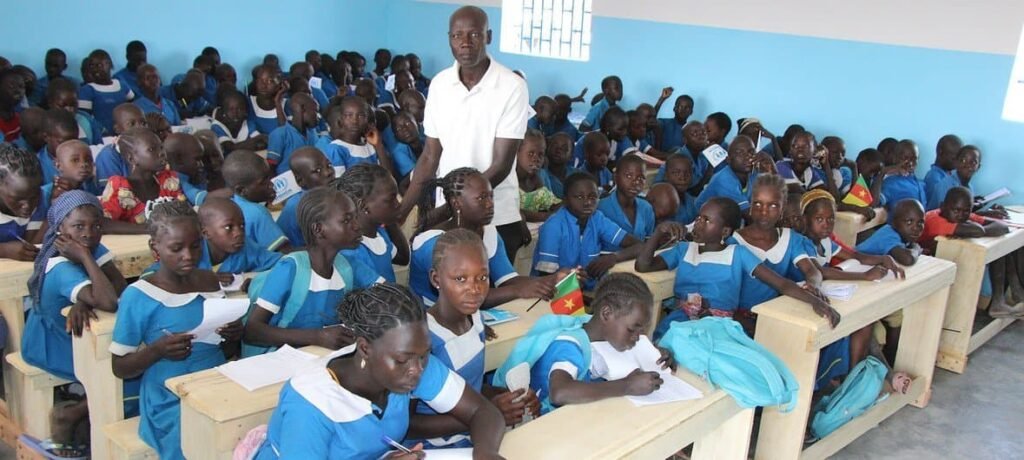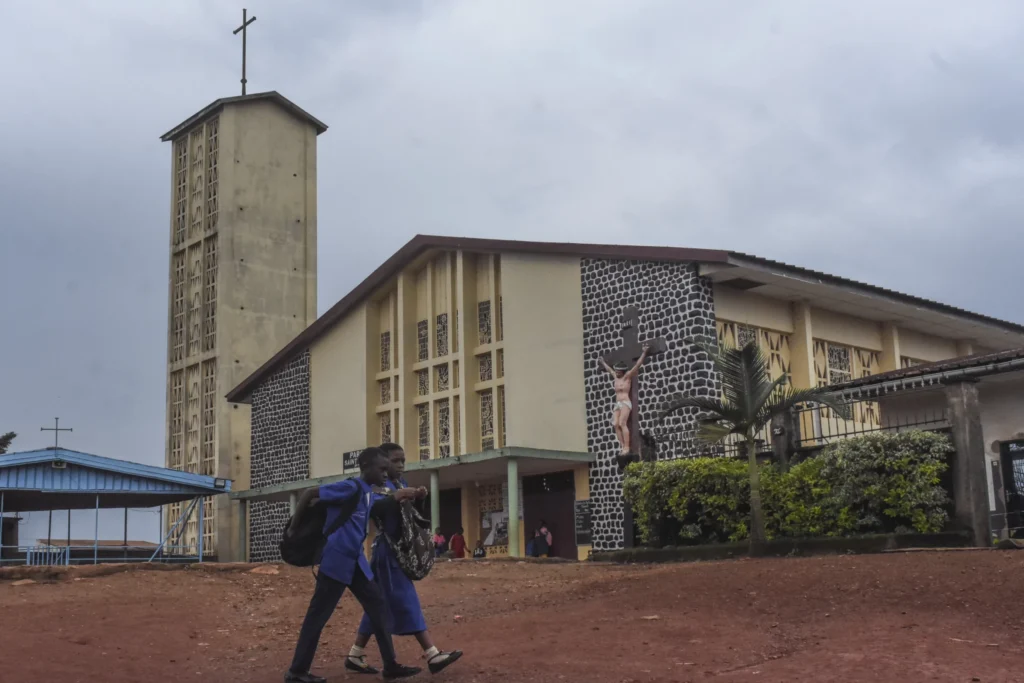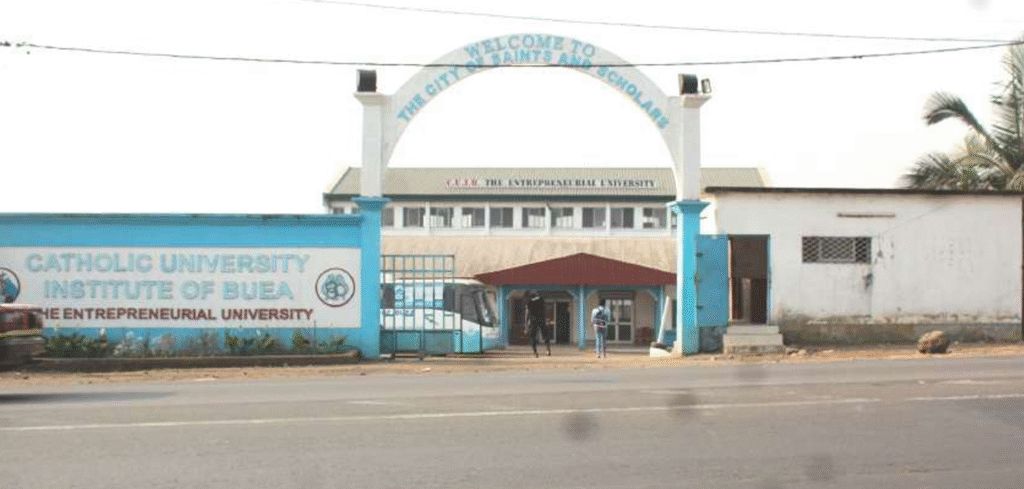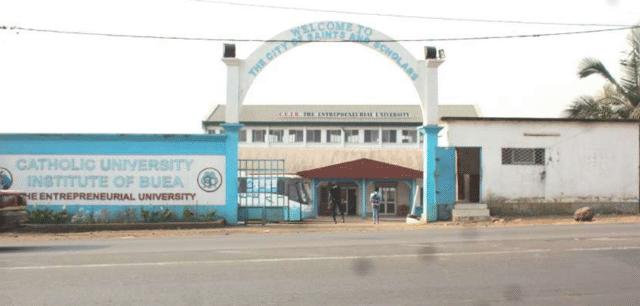It has been a long, brutal journey for pupils across Cameroon’s Anglophone regions, battered by separatist violence and economic collapse. With classrooms burning and futures crumbling, Catholic schools are now boldly charting a different course — transforming from purely academic institutions into hubs of practical, technical learning.
At the heart of this change lies a powerful realisation: academic degrees alone are not enough when graduates can’t eat, let alone earn. A poignant example comes from Alphonse Mbidzenyuy — a man who, despite holding a master’s degree in history from the University of Yaoundé, now washes cars just to survive. His story is not unique. Countless others with advanced qualifications find themselves stuck in survival mode, underemployed and disheartened. This harsh reality is what prompted the Church—more precisely, the Bishops and Education Secretaries of the Bamenda Episcopal Province—to act.
On 18 August 2025, during the Provincial Council of Education, held alongside the 78th Ordinary Meeting of the Bishops, Church leaders made a defining decision: to shift the focus from theoretical curricula that “churn out job seekers” to technical, hands-on education that nurtures problem solvers.
Table of Contents

Hands-On Education for Real-World Impact in Catholic Schools
Father Charles Ngouobi, the Catholic Education Secretary for the Archdiocese of Bamenda, explained the vision clearly: integrating technical and tertiary training into secondary schools could ignite major change across Cameroon. The goal? Equip students not just to look for jobs but to create them.
Youth unemployment, especially in urban areas like Bamenda, is staggering. Official figures claim a national rate of just 3.51%, but the reality tells a different story. Among young people, underemployment runs between 24% to 35%, and many eke out a living in informal, unskilled roles. It’s not uncommon to find master’s degree holders pedalling motorbike taxis and struggling for daily sustenance.
Archbishop Andrew Nkea of Bamenda zeroed in on the problem: grammar school systems alone are no longer sufficient. Parents, students, and clergy alike demanded practical, employable schooling. In response, the Church opened several technical institutions: St. Andrew’s Technical College, St. Peter and Paul Technical College in Ndop, and another college in Bambui. Even St. Joseph’s School in Mankon is gaining its own technical wing.
Nkea emphasised, “China and other developed economies didn’t rise by studying History and Geography alone. Progress came through training hands, building, innovating.” He cited a remarkable example of a young student who built a battery-powered, remote-controlled bamboo car — a clear sign that latent talent exists, but the educational system fails to nurture it.

Faith, Resilience, and Community Renewal
The Church’s embraced mission goes beyond just technical skills. For Father Edward Siani, Catholic education remains rooted in holistic formation. “From kindergarten onwards,” he shared, “we prepare children to become catalysts of change — community-focused, whole-person formation that doesn’t just inform the mind but strengthens the person.”
Despite the crisis, Catholic schools delivered sterling performance in the last academic cycle, with many institutions attaining perfect marks at the GCE exams. Bishop George Nkuo of Kumbo celebrated this academic achievement but urged caution—conflict has left infrastructure crumbling, undermining otherwise remarkable academic results.
The CRC closures, burning of school buildings, and displacement have deeply damaged education systems. Amidst this, Catholic schools are stepping in not just as educators, but as pillars of hope—repairing infrastructure where they can, offering technical and moral formation, and reinforcing the belief that education must empower, not just enlighten.
A Vision for the Future — Empowerment Over Survival
Cameroon’s Anglophone crisis has inflicted deep wounds—thousands killed, schools destroyed, and youth robbed of opportunity. Yet, out of this darkness, Church leaders are sparking a new narrative: one of agency, practical skills, and hope.
The shift to technical education is more than a curriculum change—it’s a fresh philosophy. By welcoming hands-on learning, engineering, ICT, and practical trades into Catholic schools, the Church is positioning learners to lift themselves and their communities. The vision includes bridging general and technical education, ensuring young Science students don’t just grasp theory, but apply it.

As students build with wood, weld metal, or harness electricity and engineering principles, they begin to shape tangible change. Vocational skills translate into microenterprises, jobs created, and new industries birthed. It’s a transformative move—turning classrooms into workshops, theory into solutions, and students into problem solvers.
The Church, understanding both the fragility and the resilience of communities in crisis, sees education as the seedbed of renewal. Through practical empowerment, they strive to break cycles of poverty and idleness, replacing despair with possibility.
Join Our Social Media Channels:
WhatsApp: NaijaEyes
Facebook: NaijaEyes
Twitter: NaijaEyes
Instagram: NaijaEyes
TikTok: NaijaEyes
READ THE LATEST EDUCATION NEWS





